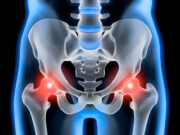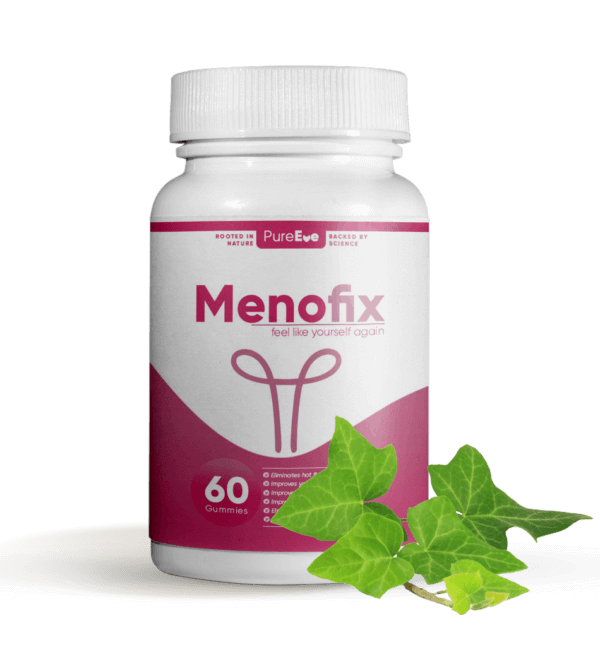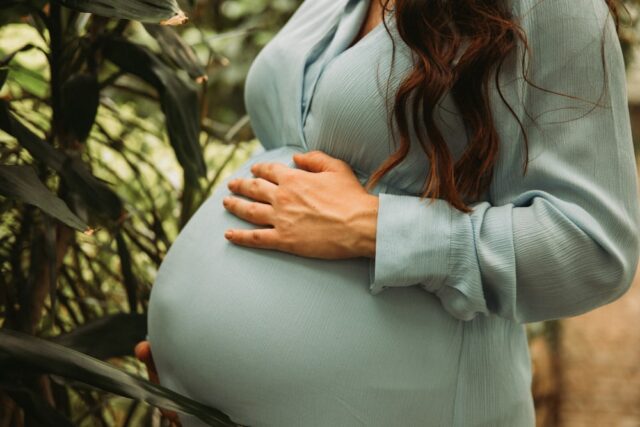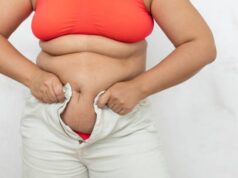Many women wonder if their symptoms mean the end of pregnancy chances, or if there’s still a possibility of conceiving. In fact, one of the most common concerns is whether you can be pregnant during menopause or if those changes are simply part of the natural transition.
In this article, we’ll cut through the confusion and explain the real connection between menopause, perimenopause, and pregnancy. Whether you’re trying to conceive, avoid pregnancy, or simply understand your body better, you’ll find clear answers to help you make informed decisions about your health and future.
What Is Menopause?
Menopause is the natural process that marks the end of a woman’s reproductive years. It is medically confirmed after 12 months gone without a menstruation, usually occurring between the ages of 45 and 55.This change happens because the ovaries slowly reduce their production of estrogen and progesterone (the hormones responsible for regulating the menstrual cycle and supporting fertility).
Stages Of Menopause
Understanding the three stages of menopause is important for determining when pregnancy may still occur.
- Perimenopause
- Menopause
- Postmenopause
Perimenopause: This is the first transitional stage leading to menopause. It typically begins in a woman’s 40s, but in some cases, it can start as early as the 30s. During this phase, ovarian function begins to decline, causing irregular menstrual cycles and fluctuating hormone levels.
Perimenopause can last anywhere from a few months to several years, with the average duration of four years.
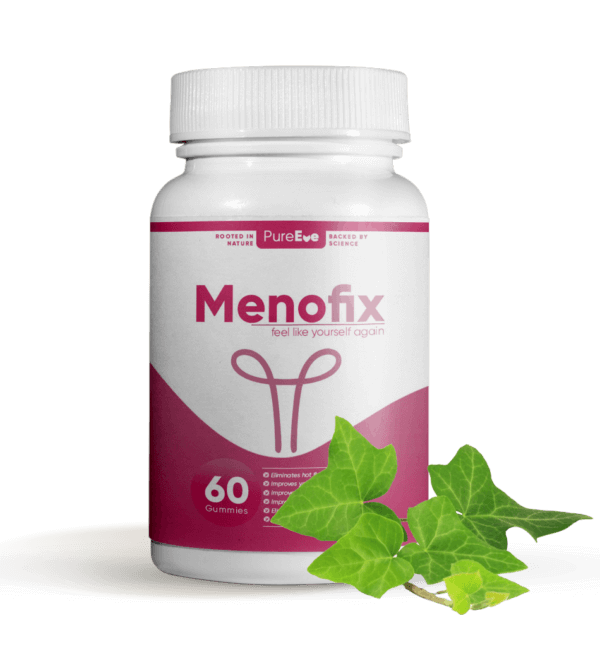
During this period, hormonal balance support can be very helpful. Many Nigerian women find relief using Menofix, a natural supplement made with herbal ingredients that help balance estrogen, reduce hot flashes, and support overall hormonal wellness. It offers gentle, non-hormonal support for women navigating this phase naturally.
Menopause: Is the point when menstruation has stopped completely for 12 consecutive months. At this stage, the ovaries have significantly reduced their production of estrogen and progesterone, and ovulation has ceased. Natural pregnancy is no longer possible once true menopause has occurred.
Postmenopause: This refers to the years following menopause. Symptoms may continue but typically become less intense over time. The risk of certain health conditions, such as osteoporosis and heart disease, increases due to decreased estrogen levels.
Signs and Symptoms of Menopause vs Pregnancy
One common challenge women face is distinguishing between menopause and pregnancy symptoms, since both conditions can share many similarities. During this stage, it can often feel confusing to know whether changes in the body are due to hormonal shifts in menopause or the early signs of pregnancy.
Most common overlapping symptoms include:
- Irregular or missed periods
- Breast tenderness
- Mood swings and irritability
- Fatigue and low energy
- Nausea or morning sickness–like feelings
- Changes in appetite
- Difficulty sleeping or night sweats
However, there are distinguishing features.
Menopausal symptoms: Hot flashes, night sweats, vaginal dryness, and decreased libido.
Pregnancy symptoms: Frequent urination, heightened sense of smell and tiredness.
If you’re experiencing these symptoms and are sexually active, it’s important to take a pregnancy test and consult with your healthcare provider for proper evaluation.
Pregnancy and Menopause
Can You Get Pregnant During Menopause?
During perimenopause, pregnancy is still possible. Although fertility is decreasing, ovulation may still occur intermittently. Many women have successfully conceived during this stage, though the chances are lower compared to younger years.
During true menopause, natural pregnancy is no longer possible. Once 12 consecutive months have passed without menstruation. At this stage, the ovaries no longer release eggs, making natural conception impossible.
Is It Possible to Get Pregnant After Menopause?
Natural conception after menopause is not possible because the ovaries stop releasing eggs. However, through assisted reproductive technologies (ART), such as in vitro fertilization (IVF) using donor eggs, women may still achieve pregnancy even after menopause.
Using Birth Control During Perimenopause
Because pregnancy is still possible until menopause is fully reached, doctors recommend using birth control if you do not wish to conceive. Options include:
Low-dose birth control pills.
Intrauterine devices (IUDs).
Barrier methods (condoms, diaphragms).
Risk of Getting Pregnant Later in Life
Pregnancy after age 35, and especially after age 40, carries increased risks for both mother and baby:
Maternal risks include higher rates of gestational diabetes, high blood pressure, preeclampsia, placental complications, and cesarean delivery. The risk of miscarriage also increases significantly with maternal age.
Fetal risks include higher rates of chromosomal abnormalities, particularly Down syndrome, as well as other genetic conditions. The risk of stillbirth and low birth weight also increases.
Before pursuing pregnancy later in life, it’s important to carefully consider these risks with proper medical guidance.
Fertility and its changes
How Menopause Affects Fertility
The transition to menopause is marked by complex hormonal changes that significantly affect fertility. Estrogen and progesterone levels fluctuate, causing irregular ovulation patterns. At the same time, follicle-stimulating hormone (FSH) levels rise as the ovaries lose responsiveness, while anti-Müllerian hormone (AMH) , a key indicator of ovarian reserve declines.
During perimenopause, some menstrual cycles may be anovulatory (when no egg is released), while others may still involve ovulation. This unpredictability makes it difficult to identify fertile windows and highlights the need for consistent contraception if pregnancy is not intended.
Understanding the Fertility Window During Perimenopause
During perimenopause, cycles become unpredictable: sometimes longer, sometimes shorter. Even if periods are irregular, ovulation can still happen, and if sperm is present, conception is possible. That’s why healthcare providers recommend birth control until you’ve gone a full year without menstruation.
Hormonal Changes and Their Impact on Getting Pregnant
The hormonal fluctuations characteristic of perimenopause create a challenging environment for conception. Estrogen levels may spike and then drop dramatically, affecting the uterine lining’s ability to support implantation. Progesterone production may be insufficient to maintain early pregnancy, increasing the risk of miscarriage.Additionally, the quality of eggs declines with age, leading to higher rates of chromosomal abnormalities. This increases the risk of miscarriage and birth defects, particularly conditions like Down syndrome.
Takeaway
While menopause marks the natural end of fertility, pregnancy is still possible during perimenopause due to irregular ovulation. Once full menopause sets in, natural pregnancy is no longer possible, but fertility treatments like IVF with donor eggs provide alternatives for women who still wish to conceive. However, late pregnancies carry significant risks and should always be approached with professional medical support.
If you are approaching menopause and concerned about pregnancy, talk to your healthcare provider about safe family planning, fertility options, and overall health management.
FAQs( Frequently Asked Questions)
Q1. Does drinking a lot of water help with menopause?
Drinking water does not stop menopause, but it can help relieve common symptoms like hot flashes, dryness, and bloating by keeping the body hydrated.
Q2. Are there natural supplements that support hormonal balance during menopause?
Yes. Natural supplements such as Menofix combine herbal extracts and vitamins that help ease common menopause symptoms like hot flashes, low energy, and mood swings. They work by supporting hormonal balance and improving overall well-being.
Q3. Can early menopause be prevented naturally?
While you cannot completely prevent early menopause, healthy lifestyle choices such as balanced nutrition, avoiding smoking, reducing stress, and maintaining a healthy weight may help delay its onset.
Q4. What is a Menopause Baby?
A “menopause baby” refers to a baby conceived during the late perimenopause stage when a woman is close to menopause but still ovulating occasionally.


